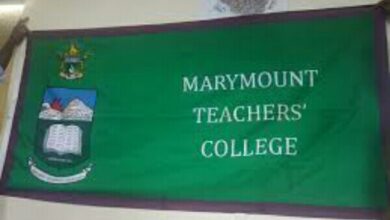Unitaid Call for Proposals: Seeking Projects to Fight Tuberculosis and its Drug-Resistant Strains
Unitaid is currently seeking proposals to Fight Tuberculosis and its Drug-Resistant Strains that aims to improve cure rates for people affected by MDR TB by addressing concrete challenges where measurable impact may be achieved, using technologies in a targeted timeframe, and filling concrete gaps in the global response.
Through extensive outreach and consultations with TB stakeholders, Unitaid has worked to understand the evolving challenges and identify potential opportunities that could align with its strategy and model – with a focus on those with potential to provide significant improvements to the lives of people affected by MDR TB.
Focused Interventions
Proposals’ scope should be carefully targeted, reflecting focused interventions to address key challenges in innovation, access, or preparing for scale-up, and demonstrating measurable impact within the time frame of the grant.
Improved access to drug-susceptibility testing (DST), specifically using targeted gene sequencing platforms for clinical decision-making (e.g., replacing phenotypic DST), in low- and lower-middle-income countries (LMICs).Targeted gene sequencing platforms have the potential to guide clinical management of patients, generate data for policy-making, and improve diagnostic test development. Many high-income countries are already devoting resources to gene sequencing laboratories. To date, the complexity and costs for rolling out such platforms have been prohibitive in low-resource settings. The landscape is, however, rapidly changing and has major implications for practical use in MDR-TB and AMR more broadly. Unitaid is interested in proposals that may include: (i) limited late-stage development to validate and/or obtain market authorization for a viable product/platform and/or (ii) targeted proof-of-concept work in high-burden settings to demonstrate the feasibility of replacing phenotypic DST by sequencing methods. Additional elements that address sample quality, such as sample transport, through innovative solutions could be included if there is clear added value with the proposal objectives. Proposals should consider addressing data validation and interpretation together with product/platform development to ensure optimal use of sequencing results (preferably in open source data information systems) for patients’ benefit.Targeted interventions to boost uptake of better MDR-TB regimens of commercially available drugs, subject to WHO guidance.The market introduction of bedaquiline in 2012 and delamanid in 2013 has opened new possibilities for better, shorter regimens for MDR TB, as supported by recent clinical studies, including the Unitaid-funded endTB Project. The bedaquiline donation program, supported by USAID in partnership with Johnson & Johnson, provides free treatment courses in over 70 LMICs, and has helped improve access to bedaquiline. However, work is needed to build on this effort and to address longer-term access and uptake of regimens incorporating the new drugs. Subject to changes in WHO policy and intended to complement ongoing work in this area, Unitaid is interested in proposals that may include targeted interventions (e.g., mapping, forecasting or supply-side work) to facilitate uptake and long-term availability of affordable, quality-assured drugs that are part of key MDR-TB regimens recommended by WHO.In addition, Unitaid supports the needs of children with TB. Unitaid has invested in, and catalyzed the market for, new child-friendly formulations to treat drug-susceptible TB, and is currently supporting work to improve identification and diagnosis to find the estimated 64% of children missed annually. With increasing availability of new improved child-friendly medicines used to treat drug-resistant
Deadline: 21 May 2018



